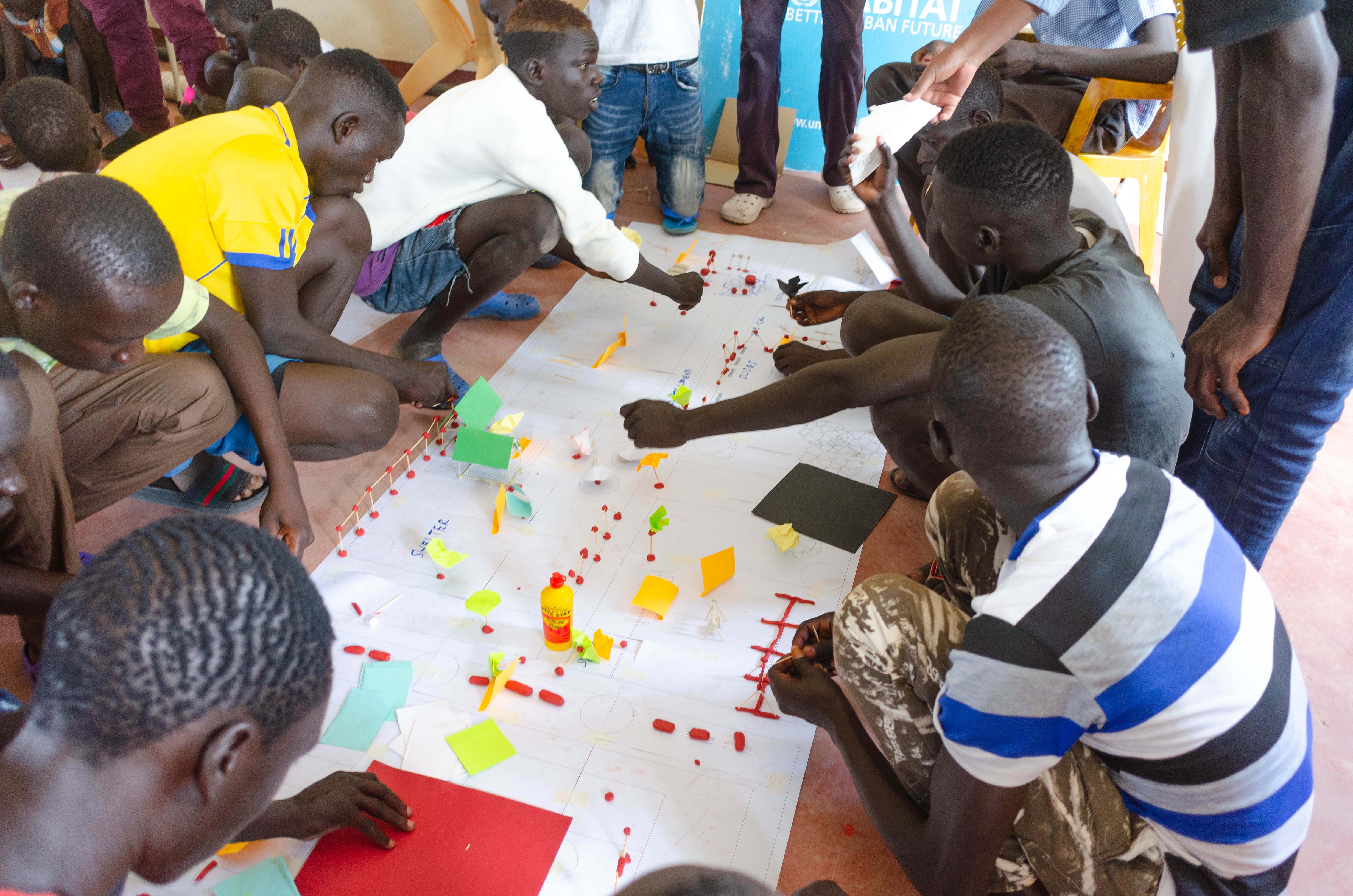Turkana County, Kenya, 19 June 2020 – Refugees from Kenya, one of the biggest refugee-hosting country in Africa, will not be holding the usual celebration of World Refugee Day this year. Instead of the singing and dancing, there will be a virtual celebration with refugees from around the country taking part along with host communities.
Kenya has nearly half a million refugees mainly from the Great Lakes and the Horn of Africa region. Around 40 per cent of the refugees live in Kakuma in Turkana County, one of the poorest counties in northern Kenya. Here the national and local authorities are working on an innovative model to bring together refugees and the host community in a pilot settlement.
UN-Habitat is actively involved in participatory planning processes ensuring everyone can be involved in developing the region.
“This settlement is different from other refugee camps because refugees were involved in making decisions on where we should have our shelters, schools, hospitals and markets. Through the UN-Habitat Settlement Development Groups, refugees who arrived here had an opportunity to participate in community action planning to share ideas and proposals on the kind of settlement vision we wanted for Kalobeyei Settlement ', said Betty Zackira, Chair of the Refugee Community Settlement Development Group.

UN-Habitat builds and advocates for sustainable infrastructure solutions such as the construction of a community centre, public spaces and amenities, rain-water harvesting water tank, road rehabilitation, durable shelter, and renewable energy business possibilities.
Patrick Lobeiyo, Chief of Kalobeyei Town, Turkana West said “Since the beginning of the Kalobeyei Settlement Plan, UN-Habitat has involved the host community and the refugees in the planning and design of the settlement. We had an opportunity to decide where common facilities should be located to enhance integration of the refugees and the host community”.
During the pandemic, UN-Habitat has worked closely with partners in preparedness planning- through the conducting of a preliminary assessment of existing facilities; advising the reallocation of facilities such as health and treatment centres and long term planning through conducting spatial profiling exercises. In these exercises, urban data is collected and analyzed, and can provide for strategies and recommendations for the settlement as Covid-19 measures to be implemented.
The Programme is supported by the Government of Japan, the Swiss Agency for Development and Cooperation (SDC) through Cities Alliance, and the EU Trust Fund for Africa.